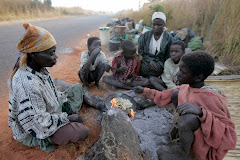General Observation
Focus continues to be on the post 29 March political developments, which have thus far led to the hosting of a Southern Africa Development Community (SADC) Extra-Ordinary summit by President Mwanawasa in Lusaka, Zambia on 12 April, 2008. A critical look at the way the media reported on the media points to a situation in which objectivity, fairness and balanced reporting was compromised and with it, a gender sensitive and conscious coverage of electoral and national issues was lost. The state controlled media has clearly taken the editorial stance of attacking the main opposition political party as well as to increasingly harp on about imperialism without verifying facts and sources. The private media has attempted a much more balanced view but as stated above, it has been overwhelmed with political developments around the announcement of results, SADC and the incidences of politically motivated violence. In both instances, the reporting and reportage content did not take into adequate consideration the representation of women’s voices and gender/gender sensitive reporting.
On the Coverage of the Statements by President Thabo Mbeki on Zimbabwe.
President Thabo Mbeki made headlines in both local and international media when he pronounced that there is no crisis in Zimbabwe in the wake of the SADC extra ordinary summit on Zimbabwe held on 12 April, 2008. The Sunday Mail of 13 April 2008 opportunistically used President Mbeki’s statements to come up with a headline story that was virtually propagandistic in nature. Without considering political and socio-economic indicators on the ground, the Sunday Mail seems to suggest that President Mbeki is the ultimate authority in defining the political, social and economic situation in Zimbabwe. One wonders what the paper thinks about our shops’ empty shelves, the ballooning of the number of Zimbabwe’s economic refugees around the world, the ever escalating inflation and a host of other indicators that point to a deepening crisis. In any case, why should we depend on a foreign head of state to inform us of what is going on in our country? Why did the Sunday Mail choose not to include the voices of ordinary women and men of Zimbabwe in its story? It can only be assumed that it was because of the need by those is control of this state weekly to misinform and misrepresent facts for politically partisan purposes.
On the coverage of female politicians.
20 women won 33.3% out of 60 contested Senatorial seats while 30 women won 14. 3 % out of the total number of 210 House of Assembly seats. Thus there is need for these women to be accorded fair coverage in the media inorder for people to keep abreast of their activities. However stories such as the one reported in the Herald of 17 April 2008 of Lynette Karenyi, the MDC-T Member of House of Assembly–elect for Chimanimani West who is facing charges of allegedly forging four signatures of villagers so as to secure her nomination with the Electoral Court is a major drawback in the women’s struggle for recognition in the political arena.
On the Coverage of Political Violence.
The state controlled media has not given any coverage to issues concerning the current spate of political violence that has been occurring during this electoral period.The Zimbabwe Association of Doctors for Human Rights (ZADHR) issued a statement that confirmed the torture and maiming of a mother and daughter from one rural area that has received no coverage in the state media or parts of the private print media. It has however received coverage in internet based publications and Short Wave radio stations that cover Zimbabwe.
On the Coverage of the National Economy
Presently inflation figures have soared by over 100% since the last official figures released by the Central Statistical Office. With this economic meltdown women have emerged to be the hardest hit. Households are falling apart with women and young girls bearing the brunt of economic environment and yet this has received limited media coverage from the media. The narratives that are emerging are no longer about the livelihoods of the people and the ordinary voices of Zimbabwean citizens, especially, mothers, daughters and sons are rarely heard or seen in the print or electronic media.
On the Coverage of National Independence Commemorations.
The media coverage of the commemoration of Zimbabwe’s National independence has sorely lacked a fair and balanced gender dimension of what the liberation struggle meant for all the people of Zimbabwe. Instead,the adverts as well as the news stories that have been carried in the state controlled media have been extremely partisan and in favour of the ruling establishment’s understanding of our national history. Women’s voices have been few and far between with greater prominence having been given to mainly ‘male’ war veterans to narrate their experiences of the struggle or the historic significance of the township of Highfields in Harare.
Subscribe to:
Post Comments (Atom)



No comments:
Post a Comment